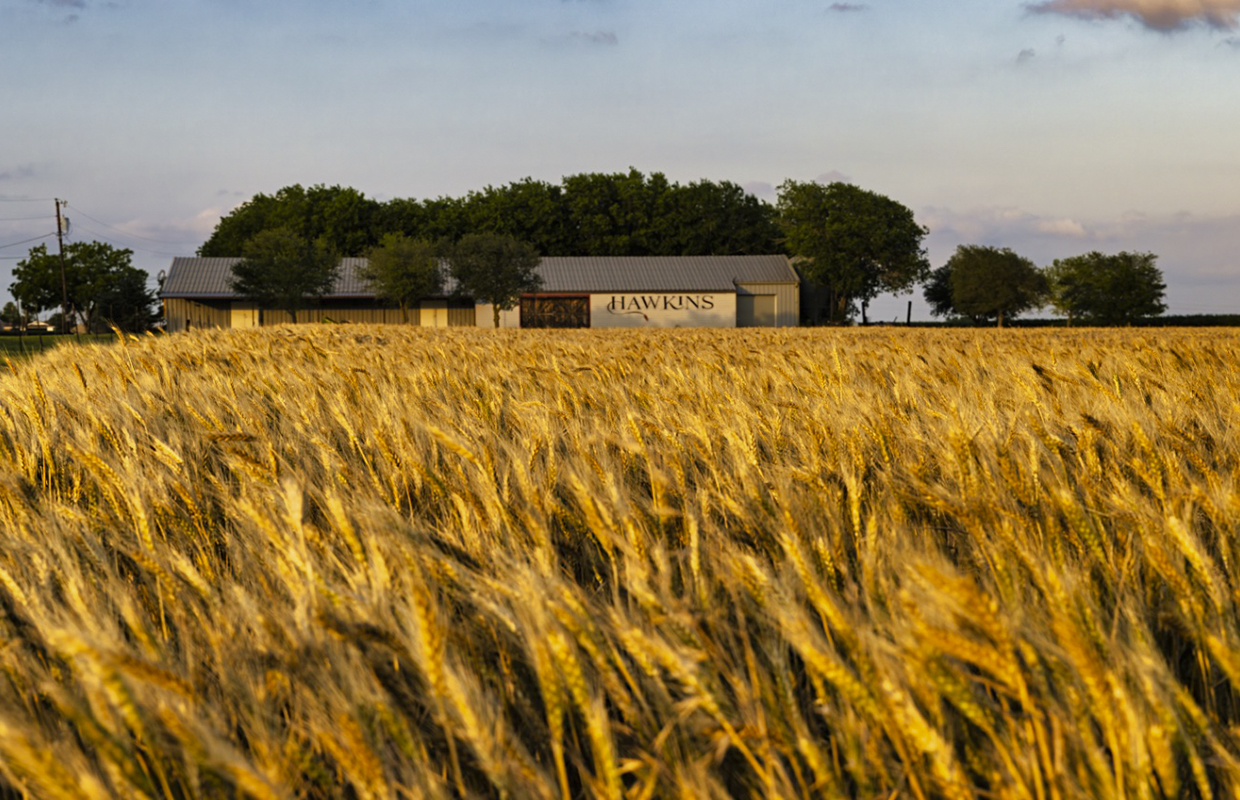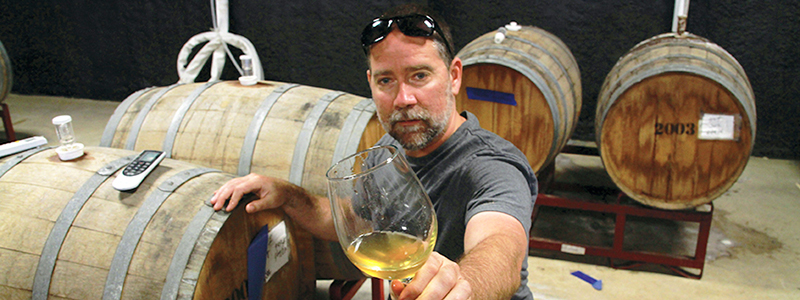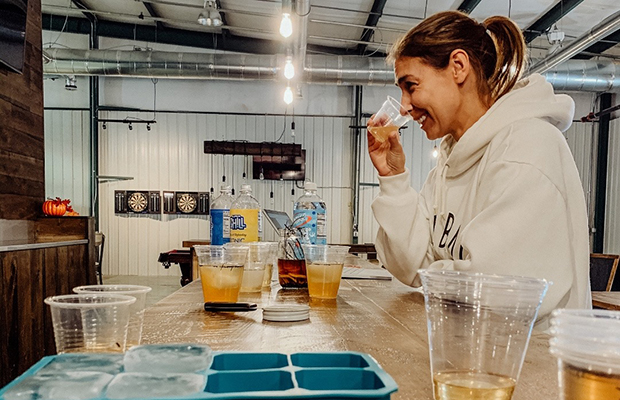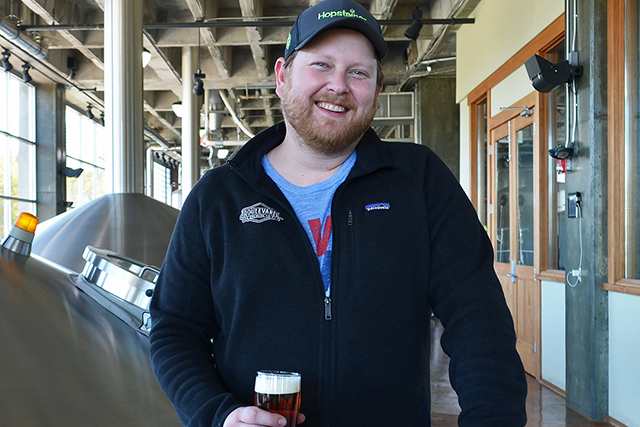
Many small, first-time brewers who are ready to go commercial follow a similar formula.
Find a spot on a small-town square or a space in an industrial park, buy some metal tanks and brew beer with ingredients sourced from trusty suppliers.
That formula didn’t appeal to Phillip Davis, owner of Hawkins Farmhouse Ales, which is located in a barn just outside Lockhart, Texas amid a sea of wheat, cotton and corn.
Davis spent years exploring areas in the Texas Hill Country, the California Central Coast and southern Oregon before finding the future home for his brewery which is named for his grandfather.
“I wanted to have a farm somewhere,” said Davis, whose appreciation of beer began in the early 1990s when he began enjoying Sierra Nevada while living in the Pacific Northwest. “I’m originally from Dallas but lived most of my life in coastal California, going to wineries and seeing a farmer use the whole land. Why can’t beer be agriculture? That’s what kind of got me.”
The former hog farm on 33 acres was the right place for the former emergency room nurse to produce an eclectic portfolio of brews that range from hop-forward beers to barnyardy, unique farmhouse ales.
The crops growing on the land are used to make the beer served to customers — a key piece of the equation for Davis, who wanted to bring high-level artisanal craftsmanship to Central Texas in an area other than Austin or San Antonio.
Farm to table, meet grain to glass.
READ MORE: Bennewitz Bucks Convention at Weeping Radish
“Not all people are going to like what we’re saying with our beer, but if we keep doing it right, the people who know what really good beer is will,” Davis said. “We just want to grow ourselves and link agriculture with beer.”
Hawkins Farmhouse Ales opened in June after several years of hard, manual labor needed to get the former hog farm in shape. The breezy, open barn layout has a laid-back, fun vibe. Gazing out at the wheat fields, guests sit at long tables and bench seating or at pub-style tables. There’s a bar outfitted with rotating taps. For entertainment, there are Jenga blocks and a basketball hoop that resides in a corner, suggesting a beer-aided game of HORSE could break out at any moment.
“It was six years of completely redoing everything,” Davis said.

Improvements to the barn included reframing and finishing the walls, adding spray foam to provide some insulation from the brutal Texas heat, and converting a portion of the barn into barrel rooms and tap rooms.
If you’ve toured a lot of breweries, the brewhouse will more closely resemble a wine cellar than your traditional production facility. The beers are largely produced in wine barrels sourced from the Central Coast of California.
It’s in those oak barrels that interesting experiments with spontaneous fermentation occur.
“It’s a romantic idea, it’s a loose science, and it’s art,” Davis said. “With winemaking, the grape and skin gives it some of its character, as do the trials and tribulations that grape goes through.
“My a-ha moment was to create that same thing with beer.”
Much of what gives Hawkins Farmhouse Ales their character is secondary fermentation.
“In ancient Egypt, people just thought you left grape juice out and it turned to wine,” Davis said. “With secondary fermentation, you don’t always know what you’re going to get.
“With time and age, some of these beers just get better. They go from liquid bread into apricot, cigar, barnyard and all of these different characters that you get. The truth for me was trying to find that culture that could make not just beer, but something beautiful.”
For Davis, the goal is not to make Hawkins Farmhouse Ales a widely distributed brand. Just the opposite, actually.
“We’re mostly interested in on-site sales without a distribution model,” he said. “We’re more focused on rotating and evolving without any outside interference. If we can build a few close relationships with tap rooms who understand our plight then we might (sell there), but (the beers) will be hand-selected and few.”




Be the first to comment